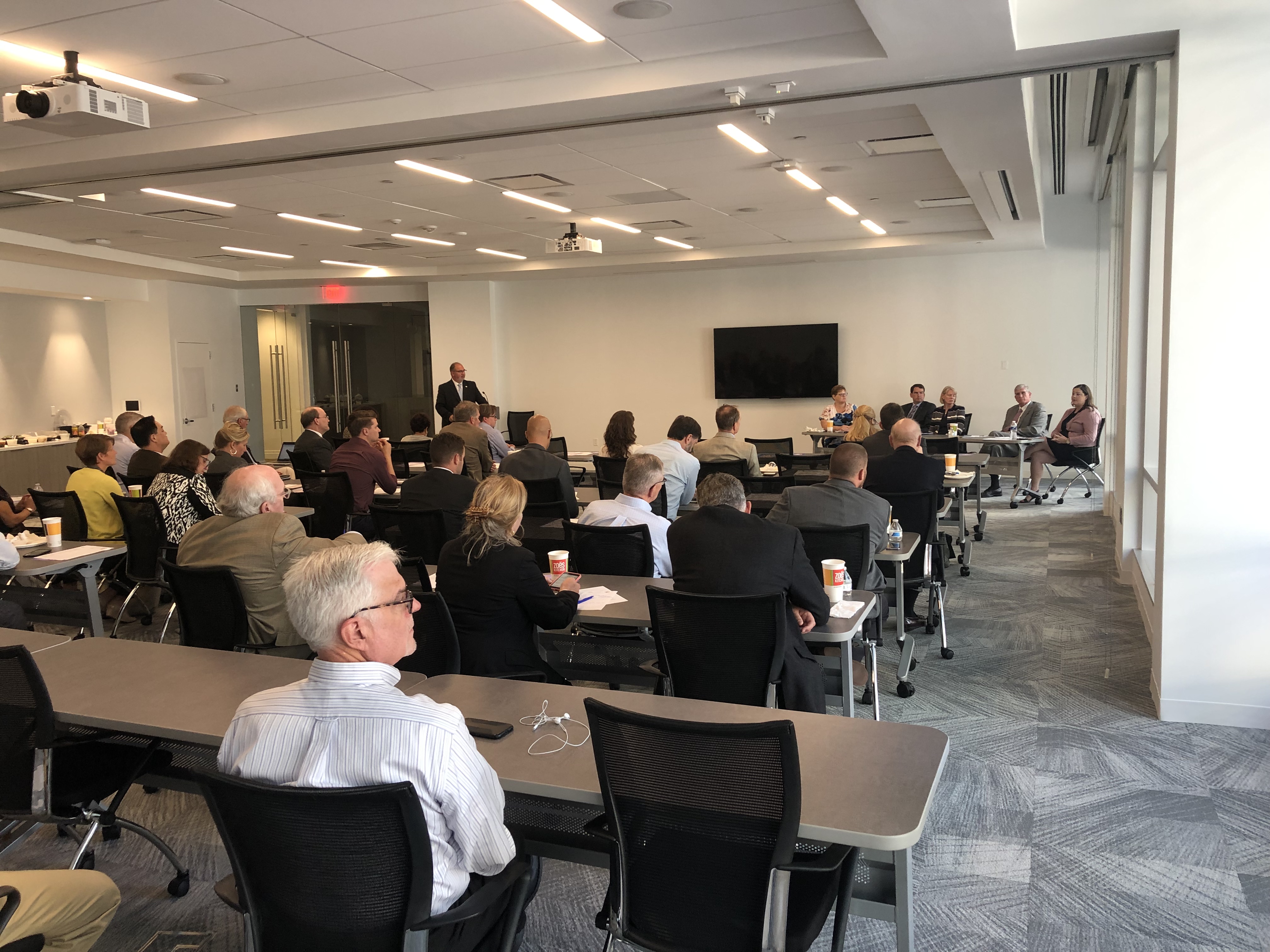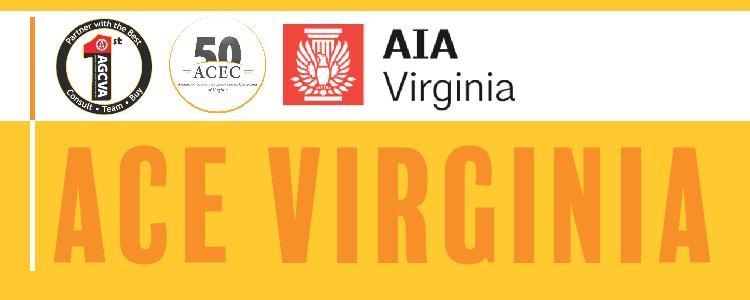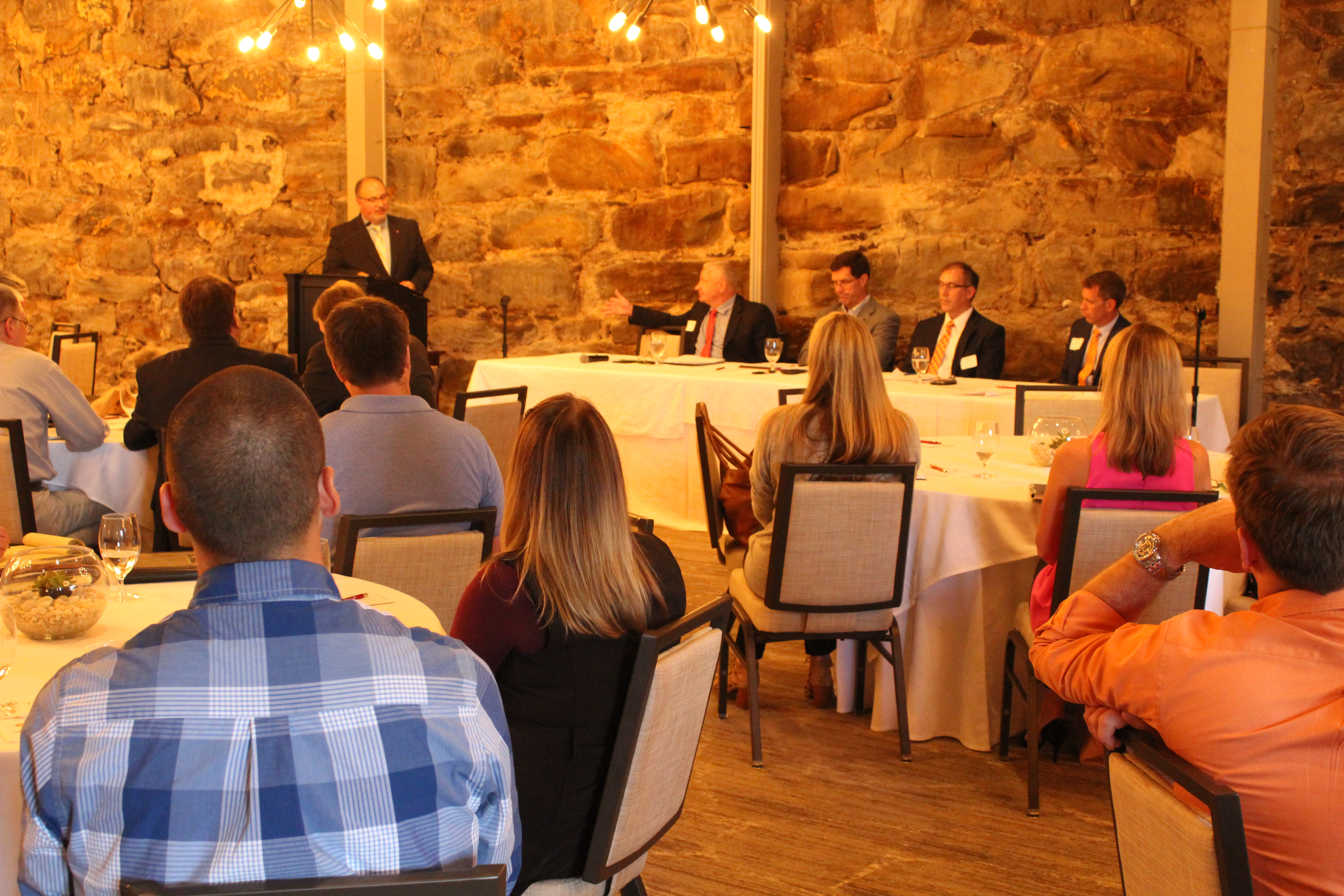ACE is a joint venture of the American Institute of Architects, Associated General Contractors, and the American Council of Engineering Companies of Virginia, to educate and promote best practices of the design and construction industry. In 2018, its inaugural year, ACE held three collaborative forums that connected the design and construction professions with those that hire them. What resulted was an improved understanding of what makes projects successful from the perspective of all stakeholders, an intimate forum for business development, and an opportunity to learn about future projects.
On September 24th, ACE had its third Joint Owner Forum of 2019, sixth overall, in Arlington. This year, we have engaged various local governments from around the Commonwealth. This forum hosted stakeholders and decision-makers from the City of Alexandria, Arlington Public Schools, and the Counties of Prince William, Fairfax, and Loudoun.
The panel consisted of the following participants:
Jeff Chambers, AIA – Director of Design & Construction [Arlington Public Schools]
Lou Ann Dorrier, RA – County Architect and Division Chief [Prince William County]
Patti Innocenti, CPPO – Deputy Director of Purchasing & Supply [Fairfax County]
Jeremy McPike – Director of General Services [City of Alexandria]
Cheryl Middleton, CPPB – Division Manager of Procurement [Loudoun]
Below is a snapshot of the key points discussed:
Project Delivery Methods:
- Design-Bid-Build is still the most frequently used method
- Arlington Public Schools use CM-at-Risk for projects over $10M
- PPEA and PPTA are used in specific circumstances such as transportation projects and parking garages
- City of Alexandria uses all methods and makes its selection based on risk mitigation
- Job Order Contracting is used for expeditious results are required on small projects
- Prince William County has adopted the habit of soliciting pre-planning studies before releasing RFPs for large projects. The studies help to fine-tune the program and budget for the CIP
How to Get Work in Each Locality:
- “We don’t interview firms, we interview people” – they want to get to know the team members who are going to work on the project. Don’t bait and switch
- The resumes of the individuals is equally, if not more, important than the firm experience
- Establish your reputation through successful completion of small projects
- Volunteer in their community every now and then
- Similar projects mean more than your firm’s proximity to the locality
- Know the issues involving the community such as zoning, historical issues, sensitivities, etc.
- You better proofread your proposal
- Size of firm does not matter – in fact – sometimes the best customer service comes from small firms
- References are checked. Make sure your references know that they are being used as references
- In a project interview, be prepared to explain how the project will still be successful if a key player leaves the firm
- Organize your RFP response to match the structure of the RFP
- RFP language is being revised to encourage new firms to pursue projects in the respective localities
- Call it out if an individual gained the relevant experience at another firm
Design and Construction Quality
- “Why are you delegating so much design?”
This conversation progressed into the Owner’s concerns about losing control of product quality and the Design + Construction industry voiced concerns about increasingly compressed project schedules. Our industry felt that they were often being asked to do the impossible – significantly reduced schedules and expectations of greater quality. It concluded with the request from Owners for us to share if the proposed schedule is unobtainable during the RFP phase.
- The design industry suggested holding “pre-qualifications” meetings before advertising large projects. This would be an opportunity to learn more about the project’s intimate details which may result in greater value received by the Owners. This thought was embraced by all.
Sustainability
- Designing to LEED Silver seemed to be the baseline standard. The locality may or may not pursue actual certification.
- Commercial Property-Assessed Clean Energy (C-PACE) financing structures are being explored and adopted
- Net-zero buildings are a reality – Arlington Public Schools has two
- Fairfax has invested in the creation of an Energy + Efficiency Department
- Commissioning is just as important as the upfront sustainability project decisions
The next forum will take place on Wednesday, November 13 in Roanoke with Southwest Virginia area local governments. Register today>>






